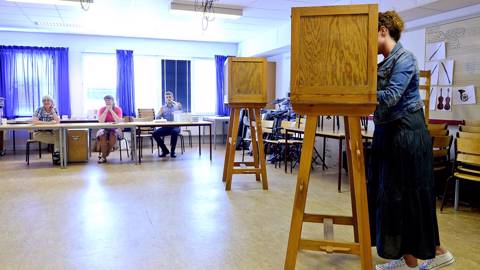OnPoint Subscriber Exclusive

The Battle for Brussels
The European Parliament election on May 23-26 will influence everything from the leadership of the EU’s governing institutions to the trajectory of national politics in individual member states. How are voters likely to behave, and what outcome should we expect?
In this Big Picture, Mark Leonard of the European Council on Foreign Relations offers a template for understanding the primary motivations of today’s European electorate. Silva Merler of the Algebris Policy & Research Forum and Bruegel’s Simone Tagliapietra and Alessio Terzi point out that most polls contradict the conventional wisdom that populist surge is coming. Mary Fitzgerald of openDemocracy, however, warns that far-right populist parties are benefiting from an influx of “dark money” from abroad. And Yves Leterme and Sam van der Staak of the International Institute for Democracy and Electoral Assistance show that voter turnout could prove the decisive factor.
The election, predicts Kemal Derviş of the Brookings Institution predicts, will yield a fragmented parliament, reflecting the overarching divide between voters who want “less Europe” and those who want “more Europe.” Yet Daniel Gros of the Center for European Policy Studies notes that voters who oppose deeper integration are not synonymous with those who want to abandon the European project altogether. And Science Po’s Zaiki Laïdi suggests that inasmuch as Euroskepticism acts as a wedge, it also may unite the pro-European left and right.
Finally, French President Emmanuel Macron presents a broad pro-European agenda, and offers a blueprint for making it a reality.
